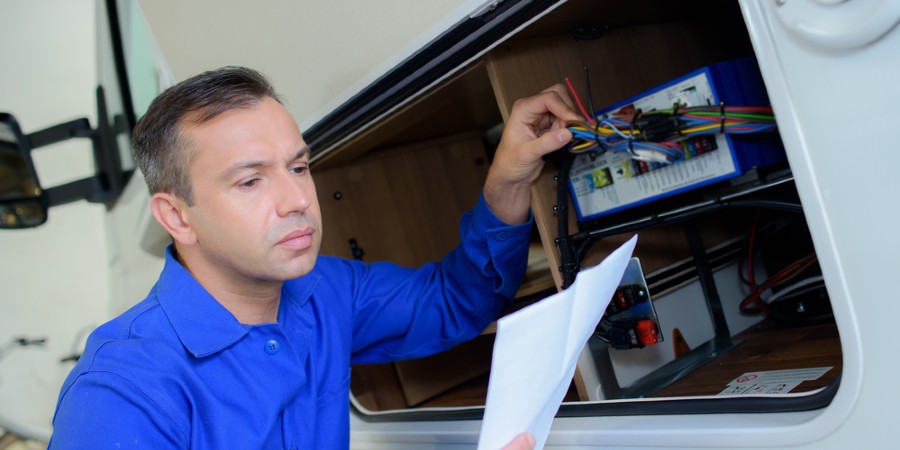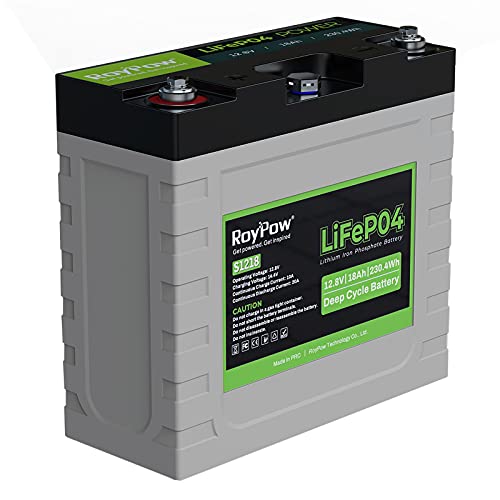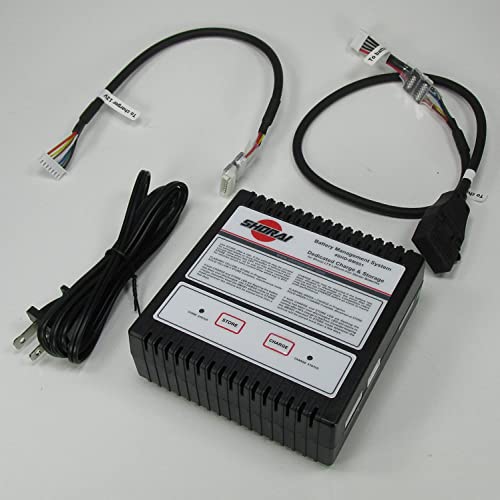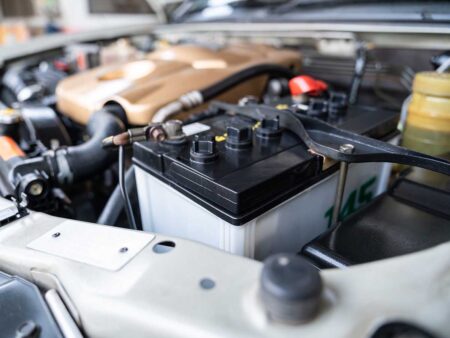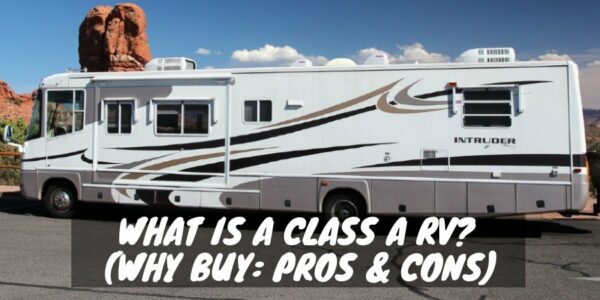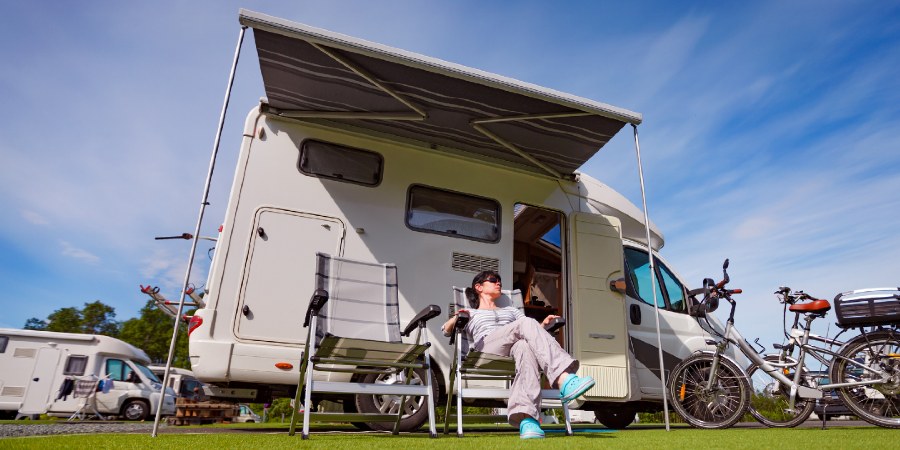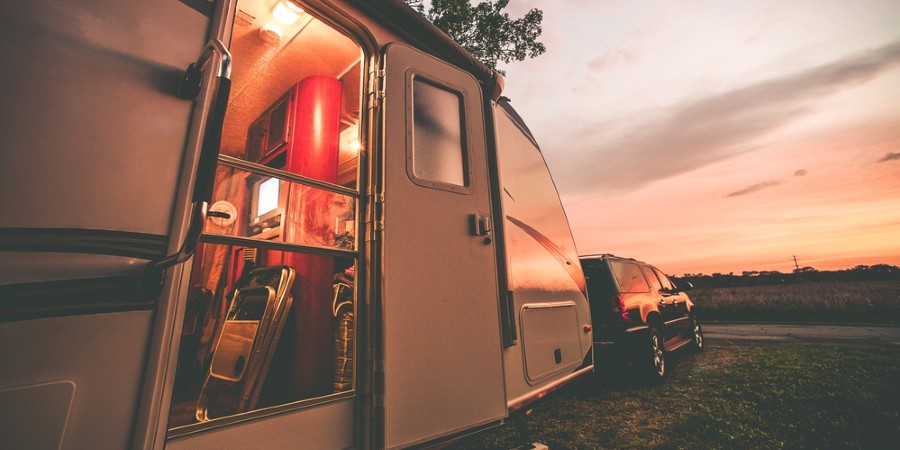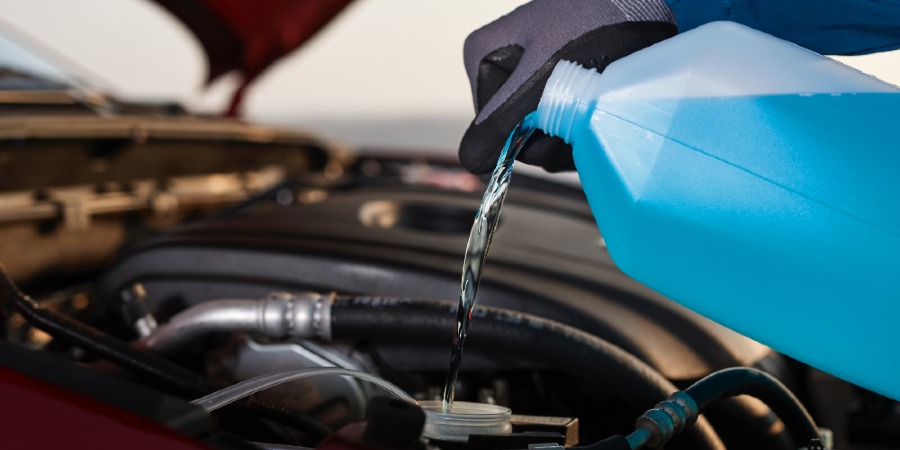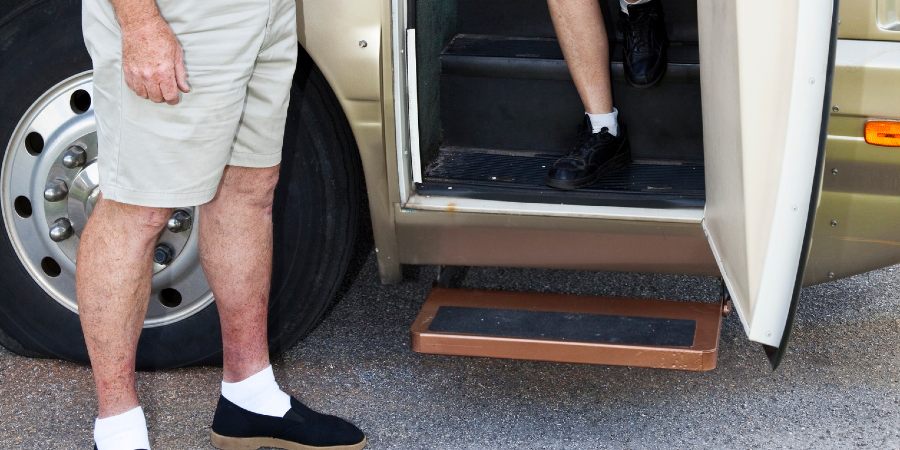Lithium batteries are a hot topic, especially for RV owners who are considering the benefits of upgrading their house battery bank and getting rid of the standard lead-acid batteries.
But is it worth switching to an RV lithium battery when you compare performance and price between the two battery types?
The answer to this crucial question can be very confusing because there are pros and cons to installing a lithium battery in your recreational vehicle, which I discuss in this guide.
By reading all the details about what benefits lithium batteries for RVs can deliver, you can balance that against the cost and environmental impact of switching to this more modern power source.
The more you know about what lithium-ion batteries for RVs can provide, the better you can decide if they are suitable for your camping needs!
What Is a Lithium RV Battery?
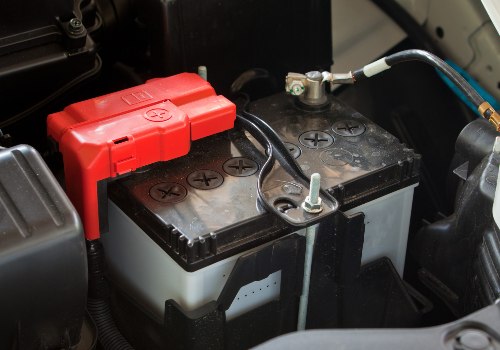
Lithium RV batteries utilize metal lithium electrodes instead of lead plate electrodes to garner power from the transition of ions across the electrolyte inside the battery housing over to the graphite electrode.
All RVs need a power source to operate lights, appliances, and 12-volt outlets, which they normally get through their lead-acid house battery or batteries.
These standard batteries will charge during travel from power generated from a motorhome or tow vehicle engine or through solar panels.
You will generally need to hook up an RV to shore power to engage 110-volt outlets or 110-volt or 220-volt appliances unless you have a large bank of batteries and an inverter.
While modern lead-acid batteries are relatively inexpensive and do a good job storing and releasing electricity, they still require a fair level of maintenance. In addition, they also have limitations on charge cycles and overall lifespan.
Pros and Cons of Installing an RV Lithium Battery
- 【Lithium Iron Battery】: The lifespan of LiFePO4 (lithium) batteries is…
- 【Built-In BMS & Convenience & Maintenance Free】: The built-in BMS…
- 【Capacity Expansion】: Our lithium batteries can be connected in…
- 【Wide Application】: Our lithium batteries can be used in the following…
- 【Low-temperature Cut-off Function】: The built-in BMS of the Lifepo4…
Lithium RV batteries are becoming more popular because they have benefits that lead-acid batteries cannot deliver, which I explain in this section.
Lithium Batteries Are More Energy Efficient
Lithium-ion batteries are much faster to charge and allow the RV to use more of the energy inside the battery before it needs a recharge.
This feature is a big draw, especially for boondocking RV trips where the worry about losing lights or appliances can get stressful.
A typical lead-acid RV battery needs to be recharged once it loses 50% of its power, whereas a lithium RV battery can lose 80% of its charge before you must refresh it.
The charge cycle lifespan is also much higher with lithium batteries, which can handle 5,000 recharges before failure.
A lead-acid battery averages around 400 recharges before it won’t hold a charge any longer.
Lithium RV Batteries Can Store and Release More Power
RV lithium batteries have the ability to create and release a higher level of energy. This feature means you can run more electrical devices inside your RV for longer spans versus a lead-acid battery.
Lithium RV batteries have the benefit of releasing a steady, higher voltage level as they discharge. Lead-acid battery voltage steadily decreases as it discharges, but lithium batteries output a constant voltage level until they are 80% discharged.
This fact means that your RV lights won’t grow dimmer and dimmer until they go out. Instead, they will remain bright until the lithium battery discharges past its limit.
Lithium RV Batteries Are Smaller and Lighter
- [Lithium Iron Phosphate Battery]: JITA LiFePO4 Deep Cycle Battery…
- [Built-In BMS Protection]: JITA 12V Lithium Battery has Built-In BMS…
- [1/3 Lightweight & IP65 Waterproof]: JITA rechargeable lithium ion…
- [Common Parameters] If you like to install a battery monitor, please…
- [Capacity Expansion]: 12V 100Ah Battery can be connected in parallels…
A lithium battery has a major benefit in smaller size and lower weight, especially for recreational vehicles where space and cargo capacity are limited.
Because lithium batteries have a higher density of energy they can store, you can enjoy the same electrical performance as before with a 60-pound lead-acid battery but lighten your load by using 30-pound lithium instead.
Lithium RV Batteries Recharge Faster
A typical lithium battery for an RV can charge to full power about four times faster than a lead-acid RV battery. So, when time is of the essence, especially if you are relying on solar energy to recharge your RV house battery bank, this feature can be a lifesaver.
Lithium RV Batteries Need Less Maintenance
Any RV battery, lithium or lead-acid, will need monitoring of the charge status to maintain it in good condition during long-term storage. However, a lithium battery does not need monthly inspections to check water levels or remove corrosion from the terminals.
Lithium RV Batteries Can Have a Longer Lifespan
A quality lithium-ion RV battery that is well-maintained can last as long as ten years. A lead-acid battery typically will last around five years before it needs replacement.
While many lithium battery manufacturers love to tout that their product can last up to 30 years, the reality is that figure was under precise conditions, most likely only found in a controlled lab setting and not the real world of RV life.
The key is to properly charge and discharge a lithium battery to get the most charge cycles from the unit, which may be difficult if you store your RV for the winter or long term. Full-time RVers will have an easier time using an RV lithium battery to its full extent.
Lithium-Ion RV Battery Cons
The disadvantages to switching your RV battery to lithium will play a role in whether or not you will find them a good value.
A Lithium-Ion RV Battery Is Expensive
- 【3500~8000 Charging Cycles】: RoyPow 12v 18Ah LiFePO4 battery…
- 【Build-in BMS Protection】: The 12v 18Ah LiFePO4 lithium battery…
- 【Low-temperature Charging Protection】: The built-in advanced…
- 【Compact Size and Lightweight】: RoyPow 12v 18Ah LiFePO4 lithium…
- 【Flexible Capacity Expansion】: RoyPow 12v 18Ah LiFePO4 battery…
RV lithium batteries aren’t cheap. Most lithium batteries for RV use cost between $700-$1,200, which is a big hit to a camping budget.
A standard deep-cycle lead-acid battery typically costs about $125, which is much more reasonable for the average RV owner.
Even offsetting the longer lifespan of a lithium battery, it still doesn’t cover what you would pay even if you had to replace the lead-acid battery in your camper three or four times within ten years.
What you are paying for by purchasing and installing a lithium battery in your motorhome, travel trailer, or fifth wheel is improved performance and reduced weight and maintenance concerns.
The Stories of Lithium-Ion RV Batteries Being Dangerous
It is true that lithium batteries inside cell phones or other devices may overheat and cause a fire or even explode. But the chances of this happening inside your RV are very low.
Why? The design of lithium batteries made for RVs is a type the industry calls lithium iron phosphate battery, or LiFePO4, which is much more stable, so they won’t overheat, catch on fire, or explode even if you are involved in an accident during travel.
Lithium RV Batteries Require a Battery Management System
When you install a lithium battery in your camper, you’ll also need to include a battery management system (BMS) that will monitor the condition and current status of the battery.
Luckily, most lithium RV batteries come with an integrated BMS system.
The function of the BMS is to protect the battery cells from damage if they are being overcharged, over-discharged, operating under unsafe temperatures, or if wiring has faults that are impeding electrical flow.
The system also keeps the cells evenly charged so the entire battery can work at maximum performance. If the BMS detects issues, it will cut power to the battery, so it doesn’t get destroyed or harm any RV occupants.
A BMS will ensure the battery is functioning correctly and help prevent the issues that can lead to overheating and the resulting damage. A lithium battery management system is a must for getting the most extended lifespan, and these cost about $100 if it doesn’t come as part of the battery.
Lithium RV Batteries Are Hard to Gauge the Remaining Power
The way a lithium battery operates makes it extremely difficult to know how much charge is left when you are camping.
As the battery will show full charge until it drops to around 20% of its capacity, you have to make a guess as to how much life is left in the battery if you are relying on it to last the rest of your camping trip.
You can purchase an accessory charge controller that can show you details such as output amperage and remaining charge capacity that will work independently from the BMS. Still, again, this is an additional expense you need to consider.
Lithium RV Batteries Don’t Work in Cold Temperatures
- 10 YEAR WARRANTY: As the No.1 lead acid battery brand on Amazon, Weize…
- AUTOMATIC BMS AND MAINTENANCE-FREE: The built-in Battery Management…
- BUILT TO LAST: Our 12V 300Ah LiFePO4 Batteries live more than 2000…
- LIGHTWEIGHT AND VERSATILE: Compared to lead-acid batteries, lithium…
- SAFE AND ENVIRONMENTALLY FRIENDLY: Made from 100% safe, nontoxic, not…
Indeed, lithium batteries do not perform well at all when temperatures plummet because recharging them at this stage can lead to irreversible damage.
Want to Connect With a Community of Over 1,078 RV Enthusiasts?
Lead-acid batteries will charge and work, albeit not as powerfully when the temperatures are freezing, making them a better choice for RV winter camping. Lithium batteries will discharge their power very well when it is cold, but if you can’t recharge them, you will be stuck in the dark with a furnace you most likely can’t ignite.
Suppose you don’t mind doing some product research and laying out more cash. In that case, you can invest in lithium batteries that get around this low-temperature recharging problem by building in heaters to keep the battery warm enough to function properly.
Another option is to ensure you keep the lithium battery in a heated storage bay so that it won’t be affected by frigid temperatures.
Lastly, you can protect your investment in a lithium battery by purchasing a brand such as Battle Born that has an integrated circuit that will prevent the battery from recharging if the temperature is too low.
Lithium RV Batteries Require a Different Converter/Charger
- Reverse Battery Protection – Prevents charger damage if battery…
- Provides Filtered DC Power – Ensures proper lithium Battery…
- Electronic Current Limiting – Automatically reduces output voltage…
- Automatic Thermal Protection – Reduces charger output to safe levels…
- Input Voltage: 105-130 VAC 50/60 Hz 1025 Watts / Output Voltage: 14. 6…
You can’t install a lithium battery in your RV and expect your current converter or charging system to work properly.
You’ll need to invest in a lithium-ion converter for your RV that will deliver a safe current to and from the battery so your RV appliances and lights work.
The switch to a lithium battery will now also include the cost of the new converter, which averages around $300, plus installation charges by an electrician or RV tech if you aren’t comfortable with a DIY RV converter to install.
If your RV currently has a solar power setup and charging controller, switching to a lithium battery will also entail changing the controller unit to one that can support transferring power to the new type of battery.
Disposal of Lithium RV Batteries is a Challenge
You cannot easily recycle lithium batteries as you can lead-acid types, which means you must dispose of lithium RV batteries safely.
It would be best never to toss them in the trash or local recycling bins, as they can cause environmental damage as they degrade in landfills.
The problem is that you’ll need to locate the nearest household hazardous waste collection site to dispose of them. The good news is that many home improvement stores like Home Depot and Lowe’s accept the collection of lithium-ion batteries.
Lithium is a rare metal to mine, and retrieving the material from spent batteries is vital.
Are RV Lithium Batteries Worth the Switch?
The only way you can say if RV lithium batteries are worth the switch from lead-acid is to take a hard look at how and where you camp, as well as the current performance you are getting from your house battery system.
Most RVers who find the switch to lithium batteries for their recreational vehicle to be a good investment are those who are full-time and those who enjoy dry camping in regions where the weather stays above freezing.
Full-timers can benefit from the more consistent and powerful energy distribution and enjoy the fuel savings of carrying less weight, which will add up over years of RV travel.
For the average weekend warrior who loves to visit RV parks or campgrounds with shore power, paying a steep price for a lithium battery and the extra components for it to run safely and efficiently probably isn’t worth it.
Final Thoughts
Are lithium batteries worth it for recreational vehicles? The answer is one you’ll have to make after considering all the pros and cons above.
As technology keeps improving, lithium batteries will become more common and hopefully lower in price, making them more accessible for RV owners who want the benefits they provide.
The more efficient power distribution and recharging ability an RV lithium battery delivers are very enticing, so give it a go if you believe it fits into your camping lifestyle!
RV Lithium Battery Upgrade (Video)
"Man cannot discover new oceans unless he has the courage to lose sight of the shore."
-- Andre Gide

